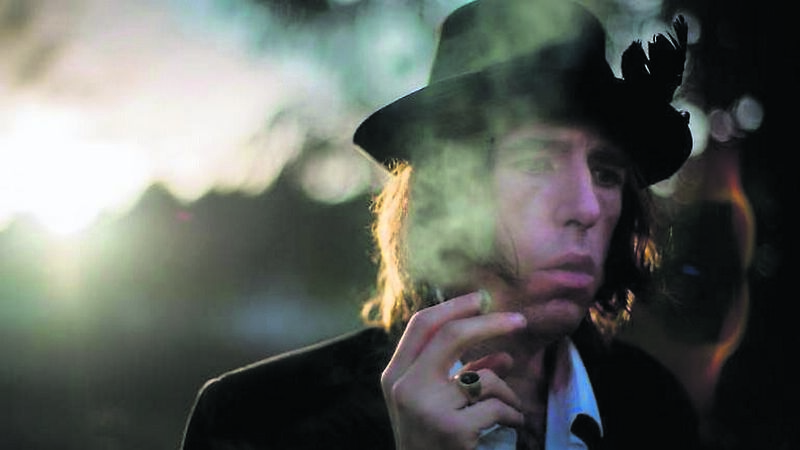Film: Fascinating story of balladeer’s life

The Graceless Age: The Ballad Of John Murry, is in cinemas now.
John Murry is a compelling and distinctive voice within contemporary American music.
His ability to intertwine deeply resonant storytelling with rich, haunting lyrics ensures his songs stay with the listener long after the music has ended.
Born in Mississippi, Murry’s musical roots are firmly planted in the Southern Gothic tradition, significantly influencing his lyrical themes and emotive style of delivery.
His journey to becoming an accomplished musician took a transformative turn when he relocated to Ireland. This not only broadened his influences but deepened his introspective writing style. Murry’s debut album, The Graceless Age, in 2012, drew widespread acclaim.
A profound exploration of addiction and redemption, it showcased his ability to confront dark personal themes with stark honesty. Critics often draw parallels between his work and legendary artists like Leonard Cohen and Nick Cave.
After his debut, Murry released A Short History Of Decay, cementing his status as a significant figure in contemporary music. His third album, The Stars Are God’s Bullet Holes, continued his trajectory, reinforcing his reputation as a bold storyteller navigating the complexities of human experience with unflinching honesty.
Documentarian Sarah Share spent several years collaborating with Murry to create her latest documentary. It takes viewers on a journey with him as he reflects on his childhood, the hardships he faced, and the cycle of addiction that affected his life.
Share recently discussed how Murry can captivate an audience, and she is right. Before I saw Murry play in Kilkenny, a city he once called home time, I wasn’t particularly familiar with the music. Watching him perform is truly special; however, observing the audience as they become engrossed in his lyrics is almost a spectacle. People get so lost in his music. It is quite a sight to witness.
He presents a captivating image, dressed in a style that resembles a blend of a character from a Dickens novel and a goth. As he narrates the documentary, his Mississippi drawl is bewitching. From the very start, he seems almost otherworldly, as if he exists between the present and the past.
The cameras follow Murry to Mississippi, where he visits his childhood home. He opens up about the pain of being adopted as a baby. Despite being raised by a good family, he has always felt the loss of connection to his birth mother.
Adopted by the family of the great U.S writer William Faulkner, Murry seemed almost destined to be an artist. Like Faulkner, he fell into the trap of addiction. Murry has become infamous for his struggles, openly discussing his early experiences with hardcore drugs and the overdoses that nearly took his life. He does not shy away from confronting his past issues.
As we explore Murry’s childhood, there are painful times - a placement in a home for teenagers with problems led to horrendous abuse by fellow teens. His pain’s attention is pointed in two directions: his adopted parents for sending him away and the boys who sexually assaulted him.
Although these moments are explored, Share approaches the subject with care, incorporating animated sequences inspired by the work of Stephen Morton, woo appears in the documentary. This depiction of dark times is handled in a way that never feels graphic, despite the undeniable difficulty of hearing Murry speak so candidly.
In Mississippi, Murry reconnects with old school friends and discusses his feelings of not fitting in. He engages in in-depth conversations about the state’s dark history of racism while examining its significance as the birthplace of the blues.
We see Murry spend time with his daughter as they explore locations such as Elvis’s childhood home, reflecting on how this state has shaped him into the musician he is today.
Share takes us to Kilkenny with Murry, where we see him perform alongside a young actor. In a strange moment, it took me a second to realise the footage was from a theatre show I had written. It’s not every day that my worlds collide, so it was amusing for my critic side to observe my other world through Share’s documentary lens.
Personal connection aside, The Graceless Age is a dynamic and emotive documentary that explores a captivating musician and the land that inspired him. As it delves into the history of the blues, it becomes clear that Murry is a musician deeply dedicated to the history that shapes him. Fascinating stuff.
The Graceless Age: The Ballad Of John Murry, in cinemas now. Triskel from May 11, Cert: 15a, ****







